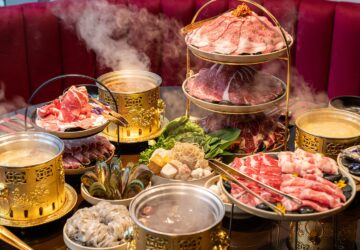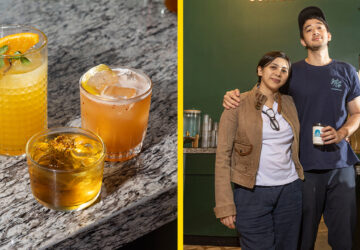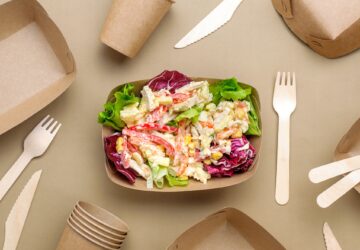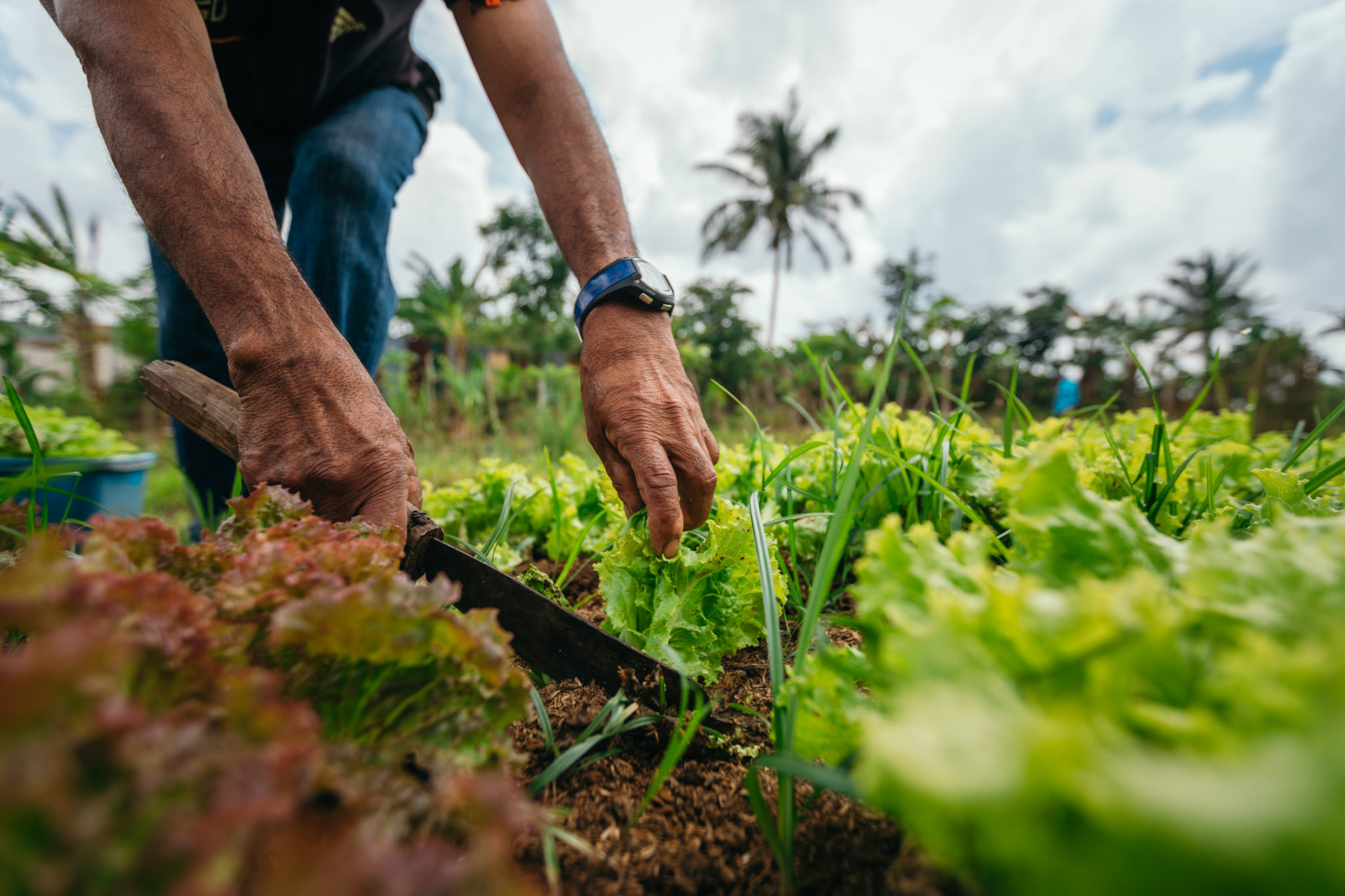With the advent of conscious consumption came the popularization of several trends in the food and beverage industry, bringing about the farm-to-table movement’s red-hot status.
Restaurants in the metro and beyond suddenly felt the need to announce that they source ingredients from local farms, the keywords being “organic” and “sustainable,” but Discovery Country Suites executive sous chef JayJay Sycip knew there was more to the label than just telling people where their food was grown.

“You see a lot of restaurants claiming to be farm-to-table. Yes, they are farm-to-table, but what we wanted to do was to put a face to the farmer. It’s credible, it has integrity to it,” explains Sycip, who, in the past few months since assuming his post has been working with Tagaytay farmers in the creation of a new menu for Restaurant Verbena, Discovery Country Suites’ in-house restaurant.
“My personal advocacy has always been knowing where my food came from. As a whole, for Discovery, we are into sustainable ingredients—sustainable fishing, sustainable farming,” he says, adding that the two causes are easily addressed in a place like Tagaytay where farms are a quick drive away.
Sourcing produce and livestock from nearby farms not only guarantees fresh, safe, and clean ingredients, it also meant less food miles and extra help for local farmers to earn a living. Now, Discovery Country Suites gets up to 25 percent of its greens and other vegetables from neighboring farms, although the goal later on is to buy as much as 40 percent of stock greens. Pork and beef are locally sourced as well.
“You see a lot of restaurants claiming to be farm-to-table. Yes, they are farm-to-table, but what we wanted to do was to put a face to the farmer. It’s credible, it has integrity to it,” explains JayJay Sycip.
In fact, everything that goes into Restaurant Verbena’s newly released Kale and Roast Beef salads is grown and harvested in nearby farms. A new concept, which is already in the works, will mostly feature local products, too.
But buying locally comes with its own difficulties, such as availability of produce with regard to season and volume. The thing about small farms is you don’t expect them to have everything all the time. Even if there are areas of improvement, the pros definitely outweigh the cons.
Another great thing about working with certain local farms is that establishments get to customize their orders. “It’s like going to a seamstress. Magpapatahi ka ng gown, customized. It takes time. It’s not something you can ask for instantly, but you can ask for what you want,” Sycip says.
The Lucciole Farm experience

Such is the case with Lucciole, one of the two farms that Discovery Country Suites relies on for “customized” produce and livestock.
Through Lucciole, Sycip is able to keep with the brand’s vision of sustainability as well as satisfy his own need to know that his ingredients are pesticide- and chemical-free.
“I’s important to know the farm processes. My mom is a cancer survivor and I attribute that to the food she eats,” he says.


Lucciole is a fully integrated natural family farm, which means their practices and methods are anchored on the principle of leaving nature to work its magic on its own. At Lucciole, there are no tilling machines and tractors, no synthetic fertilizers and pesticides, and no artificial feeds for livestock.
“Basically when you talk about natural farming, it isn’t as complicated. We only need to remember four components: soil, water, sun, and air. At the very start, my wife and I agreed that everything has to be natural. The less we interfere with it, the better,” notes Henry Brolagda, who runs Lucciole with his wife, Chedeth. He explains that the property was initially envisioned as a private retreat house for his family, but the desire to grow their own food eventually led them to opening an integrated farm that caters to restaurants and known establishments.


The farm’s Facebook page gives people an idea on what they’re setting out to do: “We grow what you need and we plant what you want” with minimized human traffic and pollution, and absolutely zero toxic chemicals.
But if you want to see the bigger picture and get a taste of integrated farming, a tour is highly recommended to “put a face to the farmer” and go beyond the usual notions of farm-to-table.


Catching the Brolagdas at the farm is a particularly enjoyable and educational experience. Upon arriving, tour-goers discover that the property is actually a firefly sanctuary (Lucciole means firefly in Italian) and is even open to a limited number of campers.
A session with farmer Brolagda is practically a crash course on integrated farming, where he explains the science behind it all. For produce to thrive, for instance, Brolagda explains that land must be mostly silt, carrying 23 percent air, 23 percent water, 50 percent soil, and the rest, microorganisms. He willingly shows the farm’s makeshift implements and even heads to the drawing board to illustrate the efficiency of swales. Companion planting takes the place of pesticide use and soil is tested by mixing dirt samples with water in repurposed plastic bottles, which are then set aside for inspection once solid contents settle at the bottom.


Even the animals reap the benefits of living in an integrated farm; pigs are treated to a “spa bath” on hot days, which is basically citronella, oregano, and basil leaves mixed in water, and goats are free to roam the premises, kids in tow.
“It’s important to let people visit farms. That’s the only way they’ll only truly understand the system,” says Brolagda, who adds that Lucciole also offers seminars to those interested to learn more about integrated farming and other related topics.
As far as the partnership with Discovery Country Suites goes, it is clear that the relationship is open and symbiotic. Sycip, clearly enthused by the quality, accessibility, and flexibility offered by Lucciole, stresses that the collaboration works because they share the same sentiments and beliefs when it comes to growing food.



“The farmer without the chef cannot be a farmer. The chef cannot be a chef without the farmer. It has to work together,” Sycip notes. “It’s synergy,” Brolagda nods in agreement.
“Our challenge now is [for the Brolagdas] to give us produce but not expensive. We’re on the same page, we both agree that organic farming shouldn’t be expensive,” Sycip explains.
“You know why? Because there’s less input. You don’t need to till the soil, you don’t need a tractor. You don’t use several types of fertilizers because everything is all-natural,” Brolagda readily replies.
Yet again, the dynamic between chef and farmer is made apparent. And ultimately, this is what hotels should offer to experience in a multi-sensory and holistic manner: to taste the food, see the land upon which it was cultivated, and meet the people who grew it.
Subscribe to our weekly newsletter to receive all the tools and solutions entrepreneurs need to stay updated on the latest news in the industry






Farm tourism is here and will get big and bigger!! We must all support these endeavors— it’s all about mutual benefits : we buy their harvests, we eat healthy…they plant more and earn more. Life can be real simple and good as God is good.
Definitely agree with this. A sustainable support system that’s beneficial for all